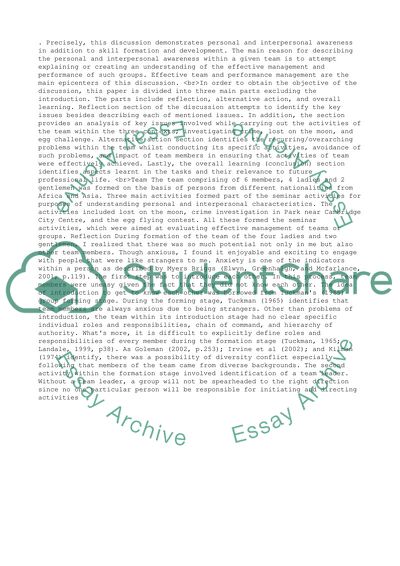Cite this document
(“Effective Team and Performance Management Essay - 2”, n.d.)
Retrieved from https://studentshare.org/management/1397945-effective-team-and-performance-management
Retrieved from https://studentshare.org/management/1397945-effective-team-and-performance-management
(Effective Team and Performance Management Essay - 2)
https://studentshare.org/management/1397945-effective-team-and-performance-management.
https://studentshare.org/management/1397945-effective-team-and-performance-management.
“Effective Team and Performance Management Essay - 2”, n.d. https://studentshare.org/management/1397945-effective-team-and-performance-management.


